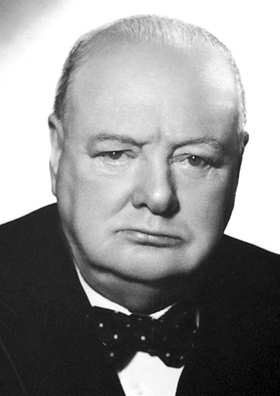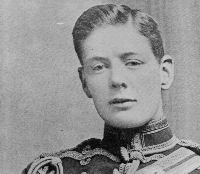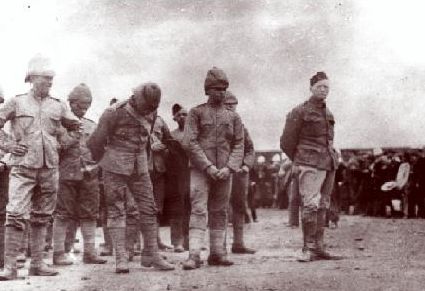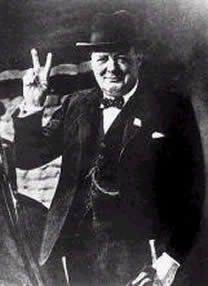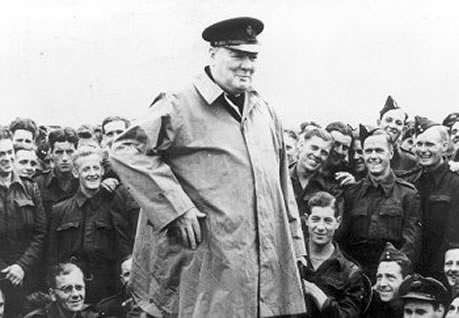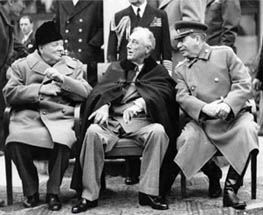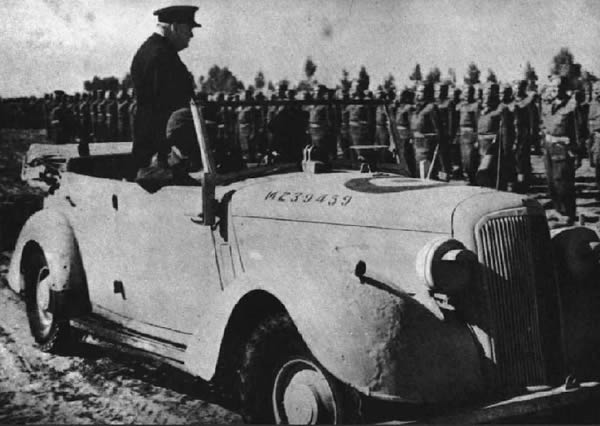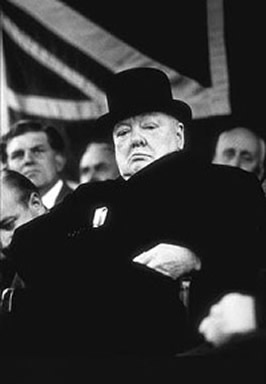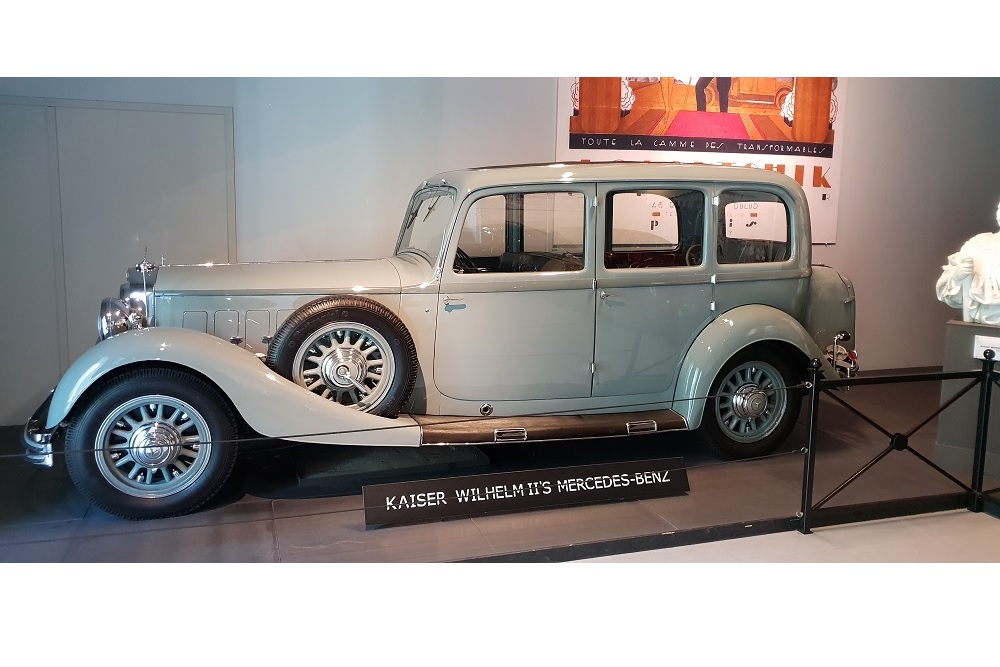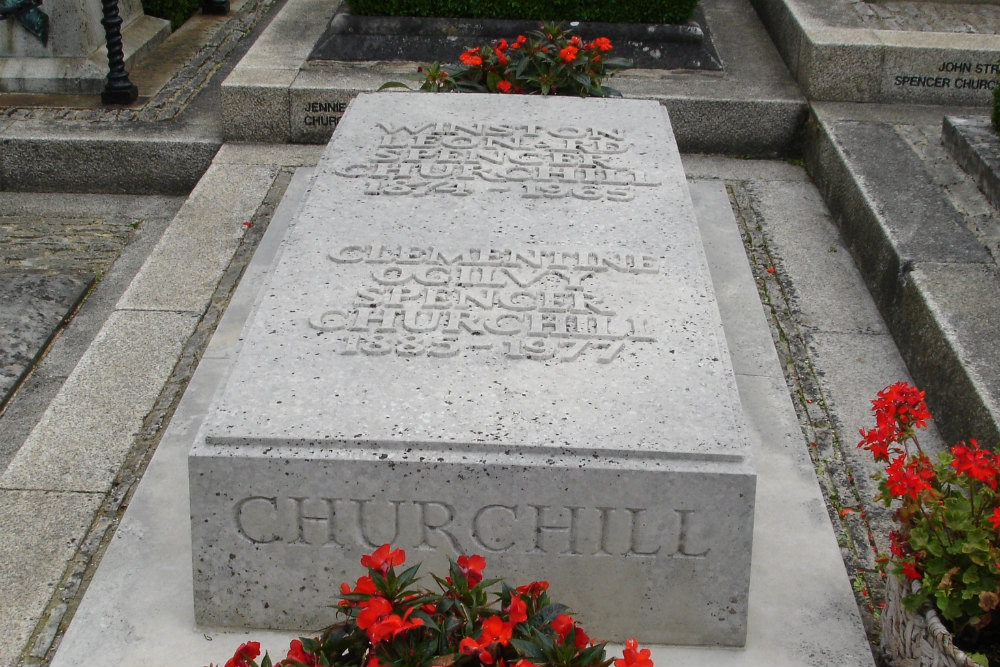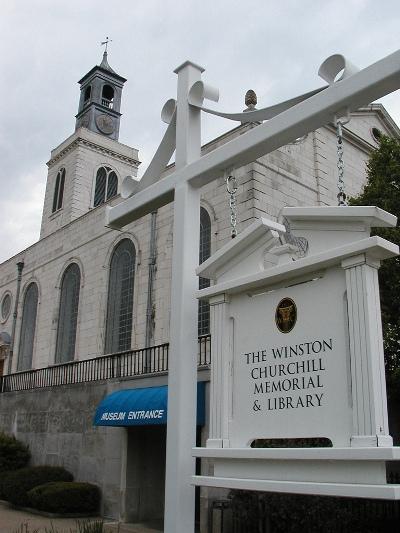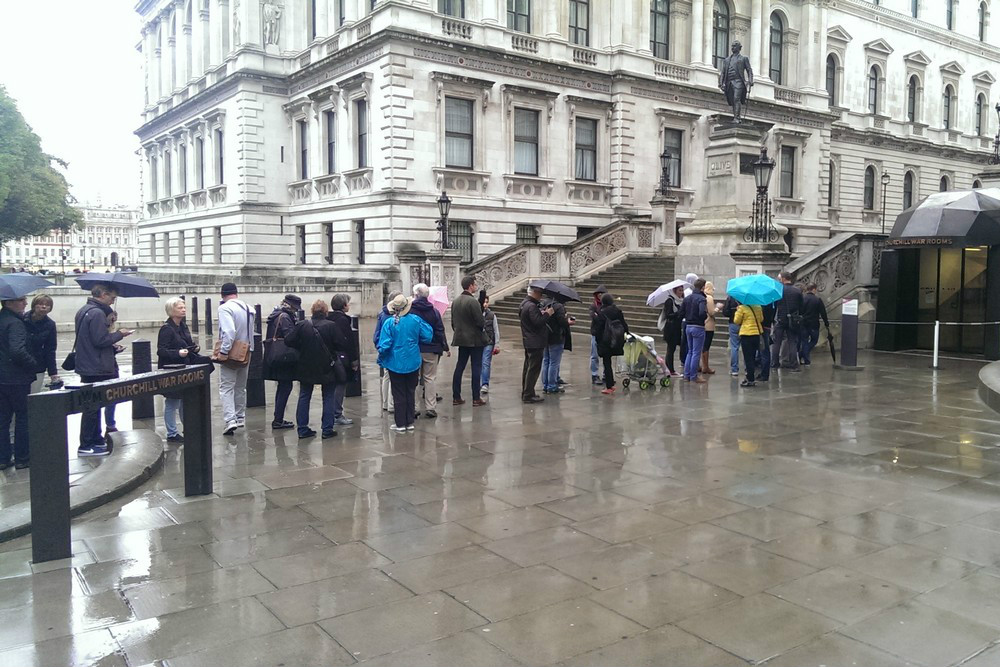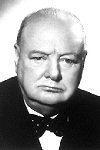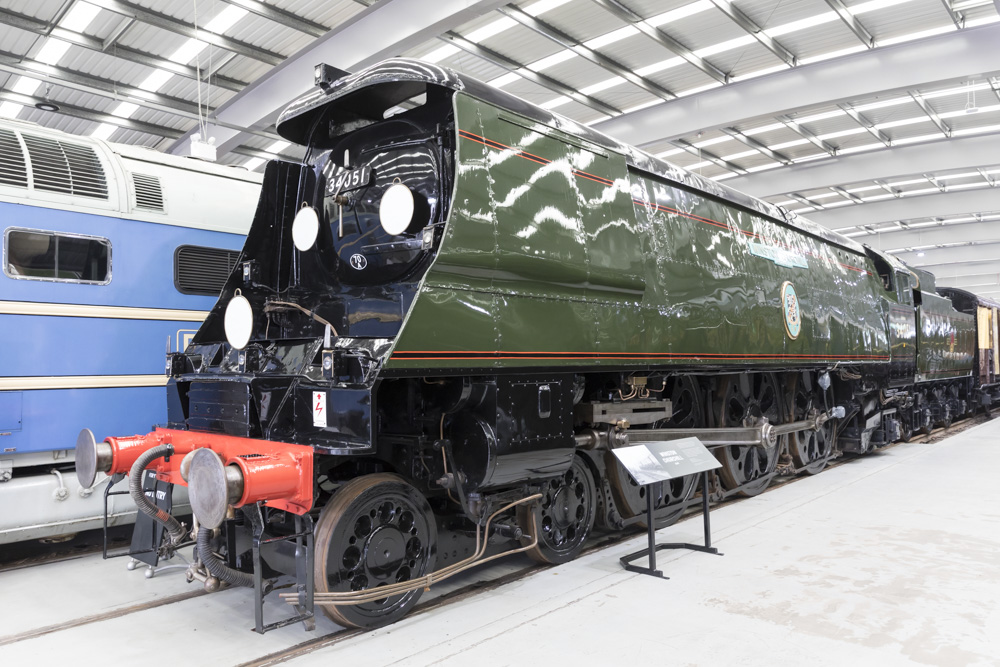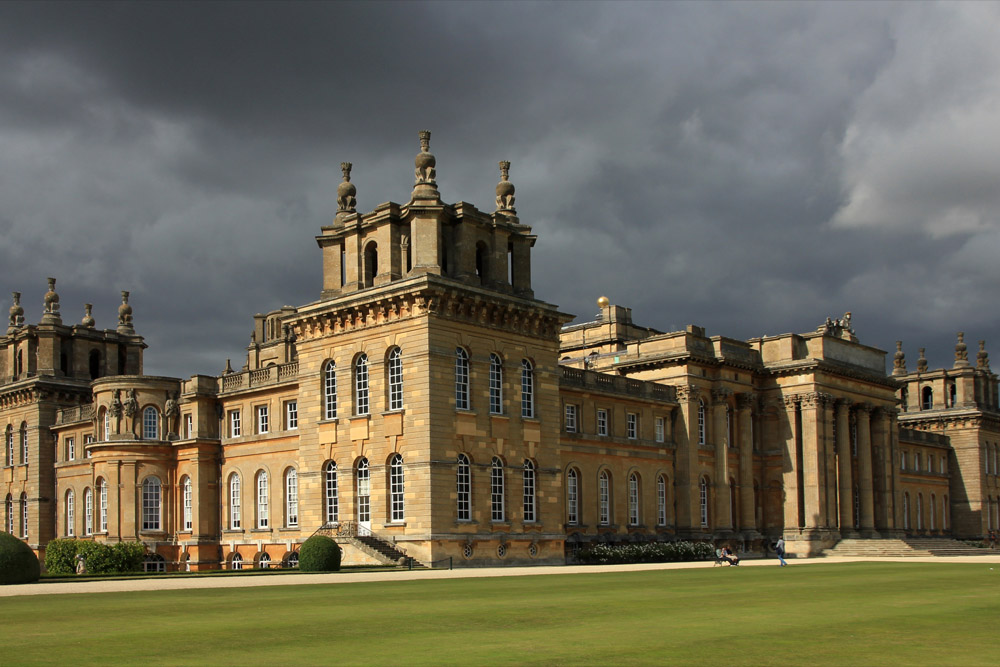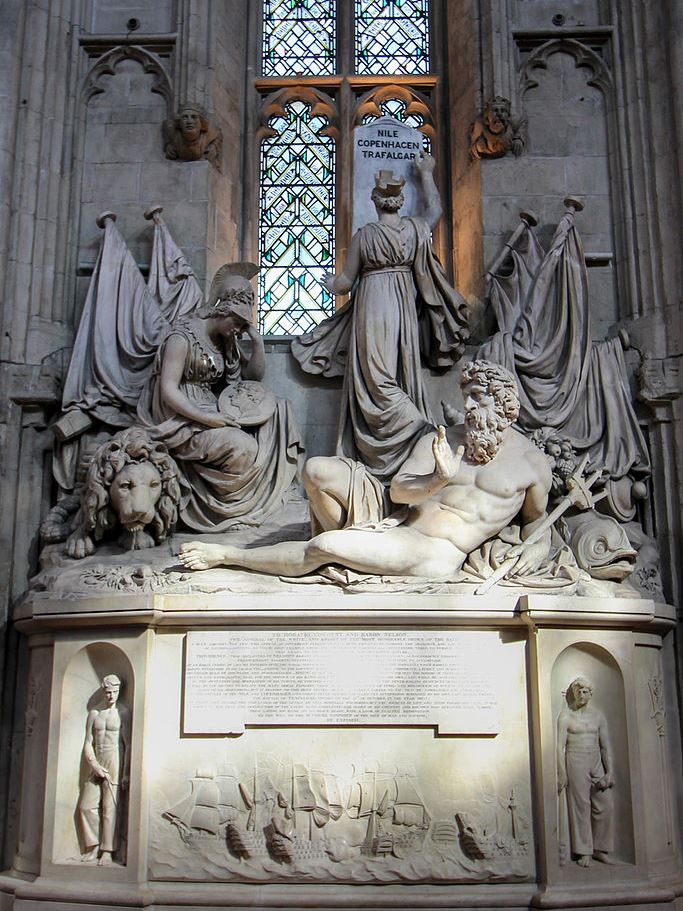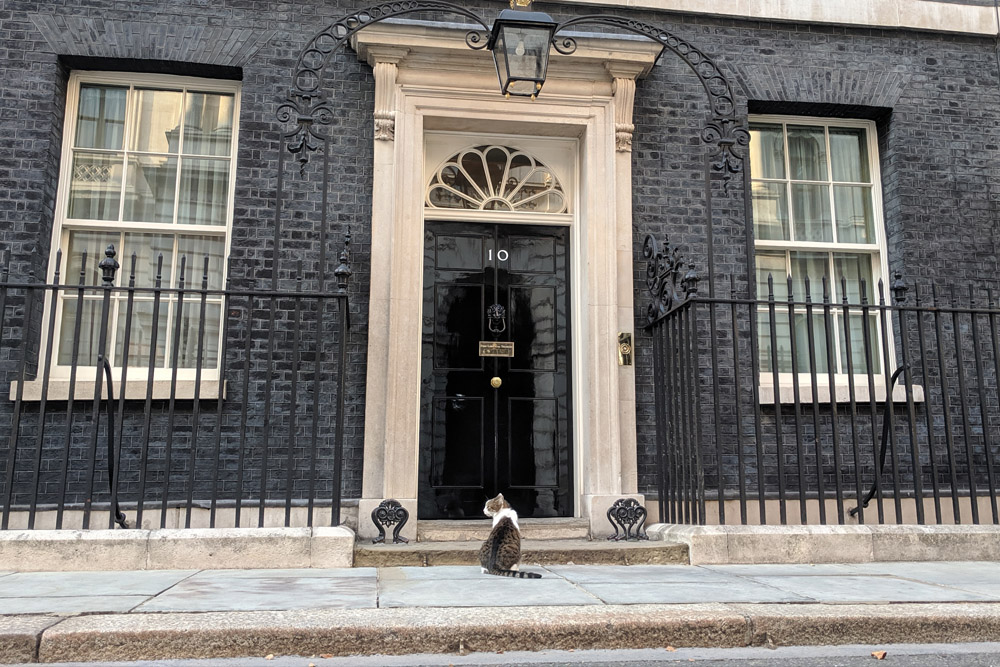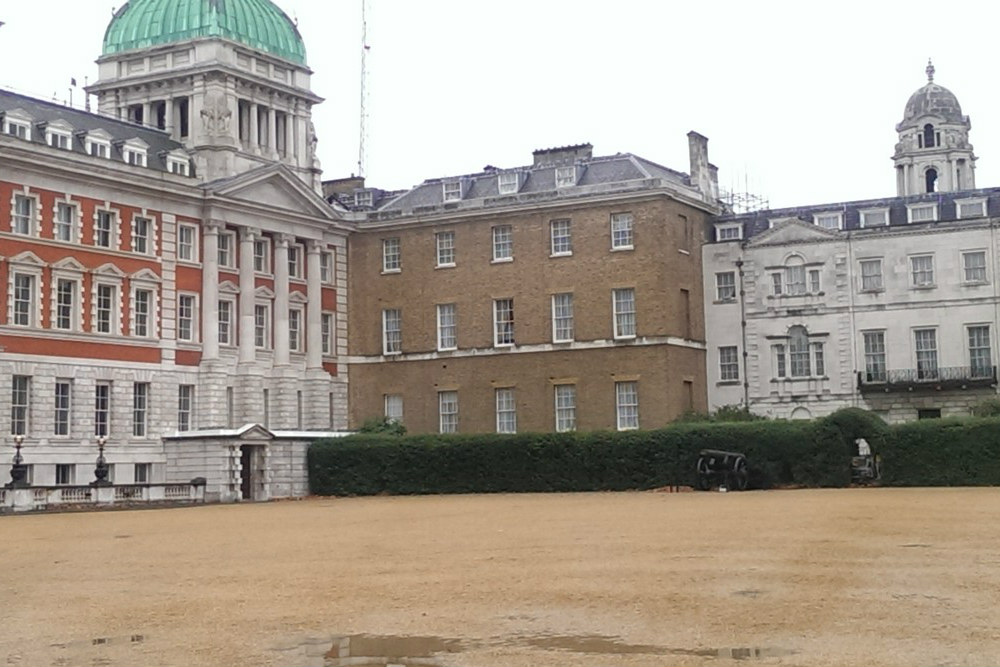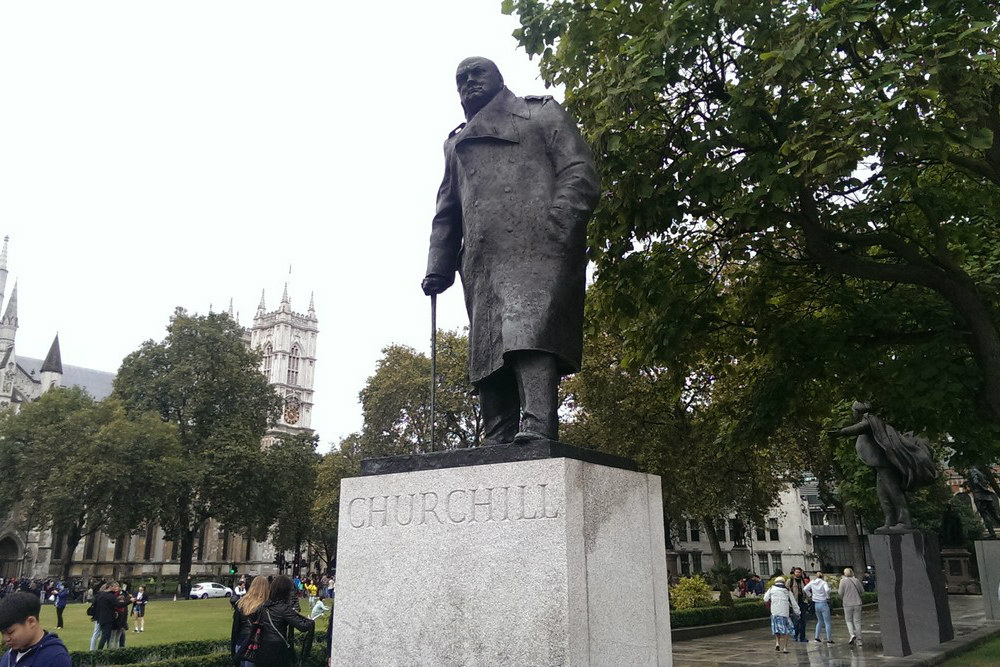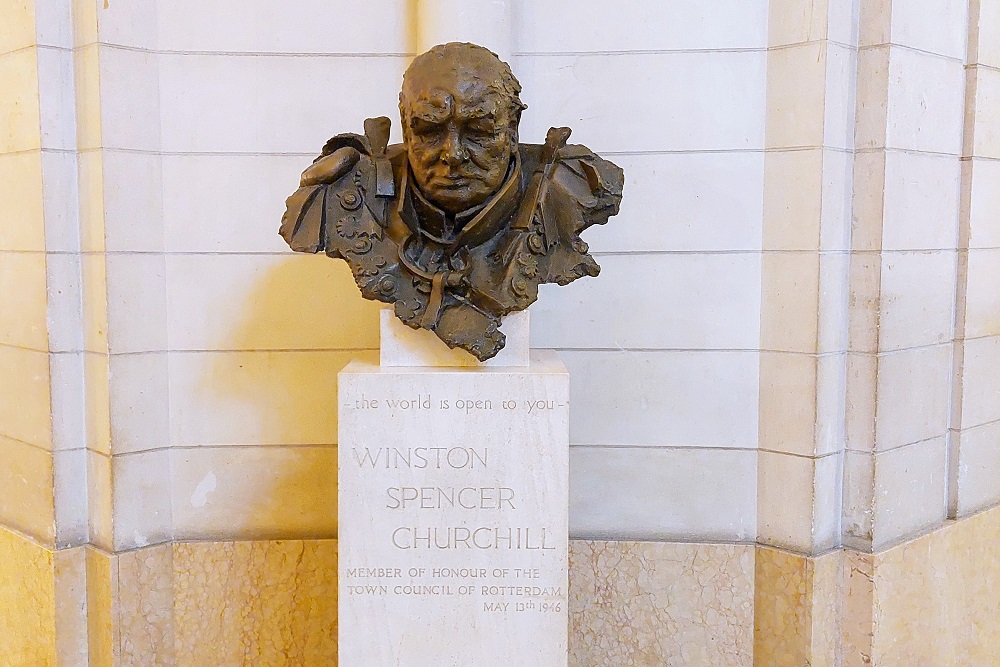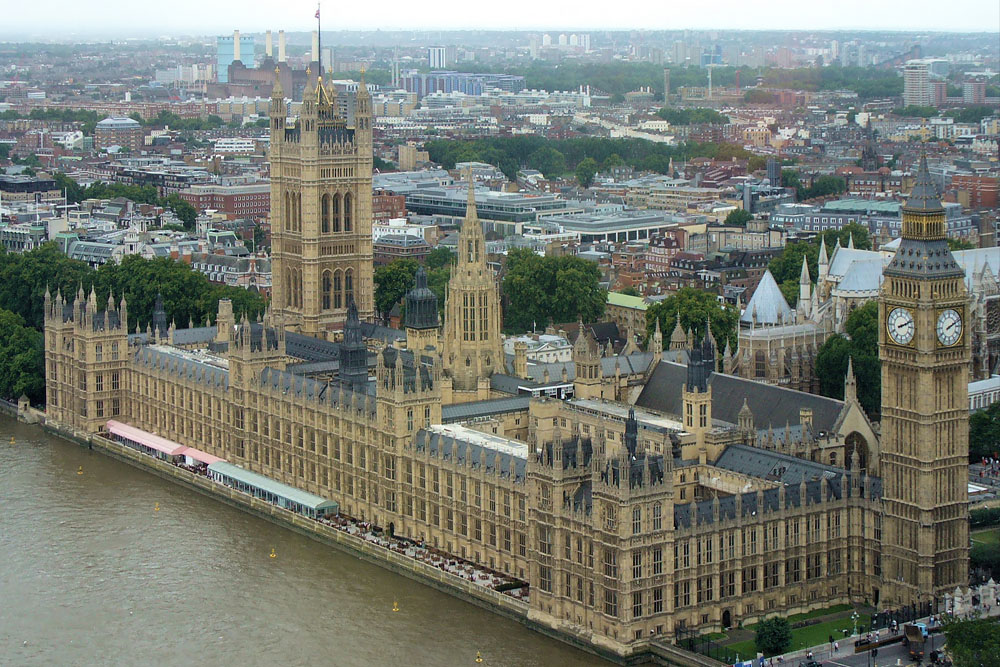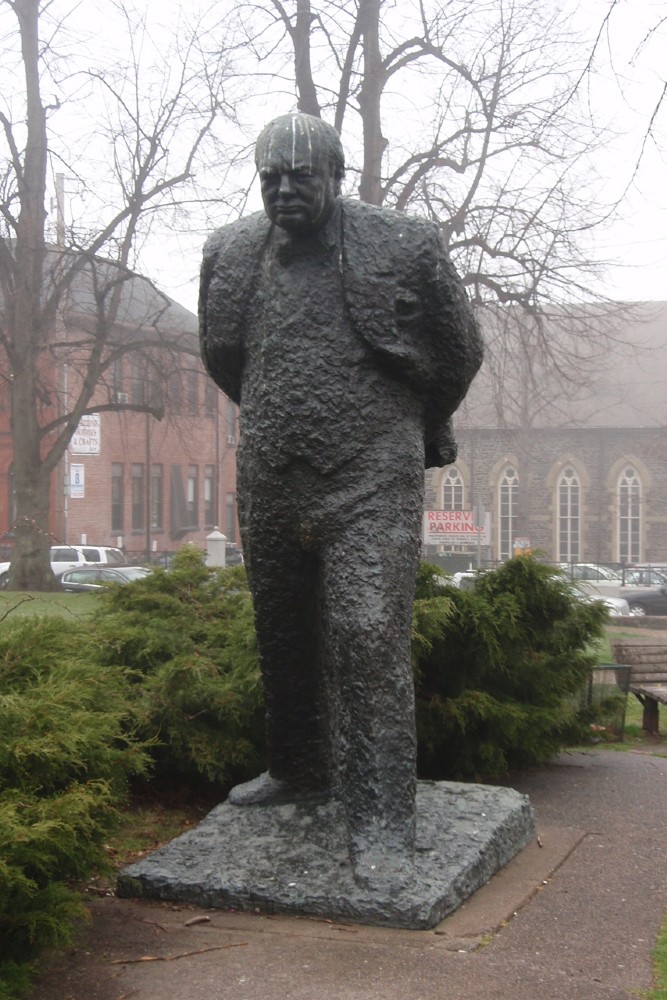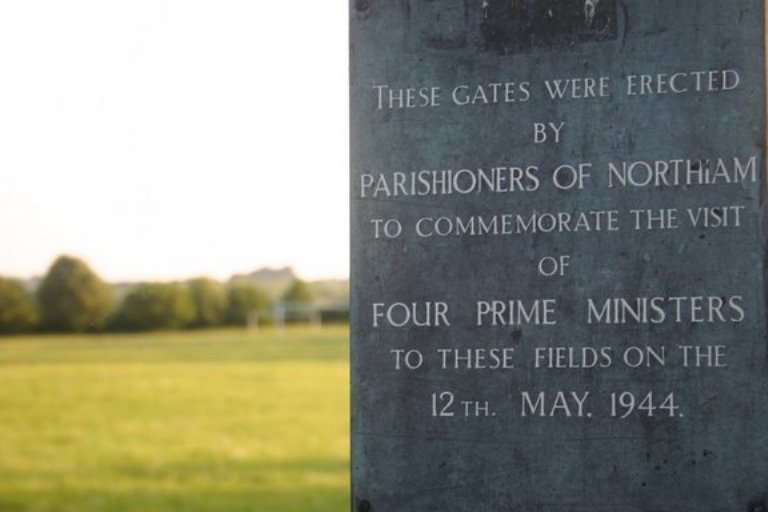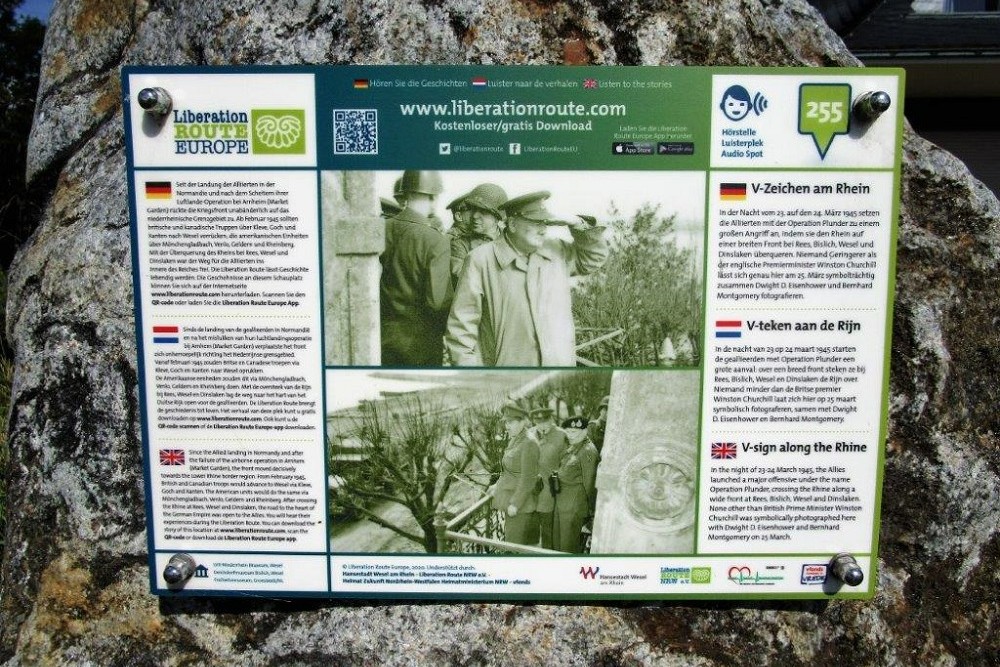Introduction
In a time when Great Britain was going through its darkest period, there was only one man who could lead the nation through it: Winston Churchill. Churchill was, in spite of his stubborn and tactless disposition, an excellent strategist who knew how to motivate people at the right time. Able to command the respect of Roosevelt, Churchill received support from the United States, without directly involving them in the war. And he was the man who, in spite of his distaste for communism, realised that Britain needed to embrace Stalin as an ally after the German invasion of the Soviet Union.
It was the determination of this man that ensured that Great Britain did not fall prey to the German lust for power. It is also unsurprising that Winston Churchill was voted the greatest Britain of all time by the British public in 2002.
Definitielijst
- communism
- Political ideology originating from the work of Karl Marx “Das Kapital” written in 1848 as a reaction to the so-called class struggle between the proletariat (labourers) and the bourgeoisie. According to Marx the proletariat would take over power from the well-to-do classes though a revolution. The communist movement aspires an ideal situation where the means of production and the means of consumption are common property of all citizens. This should end poverty and inequality (communis = common).
- invasion
- Armed incursion.
- Soviet Union
- Soviet Russia, alternative name for the USSR.
Images
Winston’s Youth
Churchill was born on 30th November 1874 in Blenheim Palace. He grew up in a family that valued internationalism, politics and culture. His father, Lord Randolph Churchill (1849-1895) was a descendant of the Duke of Marlborough who fought in the war against the French King Louis XIV at the Battle of Blenheim. His mother, Jenny Jerome (1854-1921), was American and was a quarter Native American (Iroquois) as well as being a mixture of French and German ancestry.
Blenheim Palace was named after the location of the Duke of Marlborough’s great victory and was given to the family by the British people as a token of gratitude for their efforts in battle. The Duke would become a source of inspiration for Winston in his later years.
Winston’s father had enjoyed a sparkling career in politics and in the Conservative Party. As he had died at the age of 46 (24th January 1895), Winston’s mother had a bigger influence on the development of the young Churchill. Nevertheless, the failings of his father had a great influence on Winston. As he later noted, he found a drive to correct his father’s mistakes through his own work. Work that was always inspired by and supported by his mother.
During the first years of his life, Winston was mostly raised by his nanny, Mrs Everest. She had such a large influence on the young statesman that even during the Second World War he still had a portrait of her hanging on his wall. The family moved to Ireland in 1876 for Sir Randolph’s work. At the age of five, the nanny was joined by a governess. After several years of his relatively sheltered childhood, Winston Churchill was sent to a boarding school at the age of 7. Churchill joined the St. George’s School in Ascot in November 1882. From the beginning, he took a great dislike to this school. He resented being forced to learn subjects that he found uninteresting. Also, the school was almost Spartan in its regime, even for contemporary standards. Even so, at this school he began to show more of an interest in his father's political work and his grades eventually improved.
In spite of his improved grades, Winston was known as a nuisance. It was such a serious issue that the school could not keep him in check. In 1884, his parents took him out of the school and transferred him to a private school in Brighton. Here, Winston flourished. The biggest cause for this improvement was the fact that more interest was shown in the student at this school. In 1888, he passed the entrance test for Harrow.
Secondary SchoolImmediately, a number of Winston's learning problems began to resurface. He hated learning classical languages. He was able to compensate for this shortcoming by expanding his knowledge of his mother tongue and by writing. The result was that Winston never furthered his education. However, his interest in politics did increase and he was often found in and around the parliament buildings.
Another problem at Harrow was caused by Churchill’s personality. He would not follow rules and quickly became involved in publishing and writing stories for an underground magazine. This form of student protest got him into trouble. Through hard work, he was able to finish his studies at Harrows, though only after three previous failed attempts. All in all, the Harrow experience gave the young Churchill a love for the English language and particularly for writing, something that would remain with him for the rest of his life.
Winston’s poor grades often led to arguments with his father. His father believed that he was a layabout and was not persistent enough. These heated arguments had a surprising effect on the young Winston, pushing him towards greater achievements in his later life. Winston Churchill would prove his father wrong, whatever the cost and he was determined to succeed where his father had failed.
In 1892, at the age of 18, Winston’s life took a different turn. He decided to take the entrance test for the Royal Military College at Sandhurst.
Images
Military Career
Even though Churchill failed his first entrance exam, he was accepted on his third attempt in 1893. It was not because of his good grades but rather that Churchill had decided to go into cavalry training. Since there was always a shortage of students, he was accepted regardless. Winston flourished in this environment and was the best in his class in tactics and fortifications. In 1894, he graduated with the eighth best results in a class of 150.
He was assigned to the 4th Hussars as a 2nd Lieutenant but his first battle experience occurred during leave in 1895. He served as a military observer and war correspondent in Cuba during the Spanish army’s struggle against Cuban guerrillas. He attained the position through family connections. During his stay in Cuba he wrote a series of articles for a British newspaper and he discovered Havana cigars, which would later become part of his iconic image.
Winston was posted in India where he read many books and further educated himself autodidactically. Many times he played a double role as an officer and correspondent in the army. In 1897, he joined the Indian army during the Malakand expedition against rebels along the north-western border. A year later he published his first book, "The Story of the Malakand Field Force". In 1898, he accompanied the army during the Tirah expedition. Afterwards, he joined General Kitchener during his campaign in Sudan. Once again, he was both an officer and a war correspondent. He witnessed the last traditional battle with charges by cavalry, the Battle of Omdurman, a manner of warfare that would later only be used by the Polish army and Russian Cossacks. Churchill recorded the whole campaign on paper and in 1899 two parts of "The River War" were published. His criticism of traditional war techniques gained him many enemies within the British army. Churchill did not let himself be intimidated but rather wrote about his frustrations in a novel, "Savrola", released in 1900.
In 1899, he took temporary leave from the army in an attempt to become a member of parliament. He ran as a candidate for Oldham but was defeated.
Prisoner of WarWhen the Boer War broke out in South Africa in 1899, he was sent as a correspondent by the Morning Post. He was taken prisoner by Louis Botha who would later become the prime minister of South Africa, and with whom Churchill would build a strong friendship. He was able to escape from imprisonment in Pretoria and returned, via East Africa, to the front in Natal.
Churchill knew exactly how to exploit his escape. His experiences were published in many journalistic works and made him so famous that he even went on a tour of the United States. The money that he earned, the experience and the fame he gained made it possible for him to enter the British parliament. This position was not paid meaning you needed to be wealthy to gain a seat.
Definitielijst
- cavalry
- Originally the designation for mounted troops. During World War 2 the term was used for armoured units. Main tasks are reconnaissance, attack and support of infantry.
Images
Politics and First World War
On 23rd January 1901, Winston entered politics. He was 26 years old and became an MP for the Conservative Party. His experiences in South Africa and his friendship with Boer leader, Botha, had given him a different perspective on the situation in South Africa. This caused conflict between him and his own party. When Churchill also resisted Prime Minister Chamberlain’s Tariff Law, he was thrown out of the Conservative Party. In 1904, he joined the Liberal Party.
Through his position in the Liberal Party and their growing support, Churchill slowly but surely climbed the hierarchy. Between 1908 and 1911, he held several high positions. His first important role was as the Under-Secretary of State for the Colonies. Here he played an important part in the peace negotiations with the Boers in South Africa. In 1906, Churchill published a biography of his father, "Lord Randolph Churchill", followed by his experiences as a reporter in" My African Journey" in 1908. In the same year, Churchill married Clementine Hozier. They would later have four daughters and a son.
Between 1908 and 1910 he was the President of the Board of Trade and after that, Home Secretary in 1910 and 1911. In this role, Churchill was responsible for setting up several social measures for health and unemployment. From 1911 onwards, he took on his most important function as First Lord of the Admiralty. He played a large part in the modernisation of the Royal Navy, meaning that it was one of the most modern in the world by the outbreak of the First World War. It was due to his initiatives that the Royal Naval Air Service was created and the first steps towards the development of the tank as a modern weapon were taken. The combination of political and military experience made Churchill exceptionally suited to the position.
First World WarThe soldier in Churchill was compelled to be close to the action, so when the First World War broke out he left London. He sent the Royal Naval Division to war in the battlefields of Flanders and lead the Navy from his headquarters in Antwerp, taking a hands-on approach. The defence of Antwerp would be led by the Belgian Army along with British troops. However, it took a long time for the British troops to arrive. The Belgian troops were experiencing difficulties and were on the edge of collapse. At the very moment that the Belgians had lost their courage, Churchill spoke directly to the troops in order to encourage them on. However, he could not prevent Antwerp from falling into German hands. On the other hand, he was able to motivate the Belgians to continue their struggle.
When the naval action against the Turks in the Dardanelles failed (the famous landing at Gallipoli), Churchill took full responsibility. The Cabinet Crisis that followed and the formation of a new coalition government meant the end of his career in May 1915. For the Conservatives, Churchill's resignation was a prerequisite for taking part in the government. Churchill withdrew from public life and started painting, a hobby that he certainly had a talent for and that he would practice for the rest of his life.
His military ambitions remained strong and in 1916 he voluntarily served on the Western Front, where he became commander of the 6th Royal Scots Fusiliers with the rank of Major. His knowledge and experience as a politician did not go unnoticed and when British Prime Minister, Lloyd George was looking for expertise, he called Churchill back. Lloyd George was an old friend of Churchill’s and knew of his talents. Winston Churchill returned to the cabinet as Minister of Munitions. In this position he began by increasing the number of British tanks and went to the battlefields as often as possible.
By the end of the war, Winston Churchill had strengthened his position as a politician.
Definitielijst
- First World War
- Took place from 1914 till 1918 and is also named The Great War. The conflict started because of increased nationalism, militarism and neo-colonialism in Europe. Two alliances battled one another during the 4-year war, which after a dynamic start, resulted into static trench warfare. The belligerents were the Triple Alliance (consisting of Great-Britain, France, and Russia; later enlarged by Italy and the USA, amongst others) on the one hand and the Central Powers (consisting of Germany, Austria-Hungary, Bulgaria and the Ottoman empire) on the other hand. The war was characterized by the huge number of casualties and the use of many new weapons (flamethrowers, aircraft, poison gas, tanks). The war ended in 1918 when Germany and its allies surrendered unconditionally.
Images
The Interbellum
Churchill remained the Secretary of State for Air until 1921. During this period he reformed the army and developed the Air Force. He even became a pilot. He resisted the new Soviet regime by openly supporting counter-revolutionaries. In the years that followed (1921-1922) he was the Secretary of State for the Colonies. He played a large role in the formation of the new Arab states under British mandate in the Middle East, while at the same time supporting the development of a Jewish state. He was able to gain the trust of the Arabs. This did not go down well with the Conservatives. This mistrust was strengthened by Churchill’s involvement in the formation of the Irish Republic.
The 1922 elections were disastrous for Churchill. He lost his seat in parliament and spent the following two years in political isolation. He spent his time writing a five-part account of the First World War, "The World Crisis". Eventually, he was allowed to rejoin the Conservative Party. He was still not fully accepted and during the Baldwin cabinet (1924-1929) he held trivial positions. For five years, he was saddled with the position of Chancellor of the Exchequer, a function without much importance at the time. As time went on, Churchill was being fully ignored.
Up and until 1939, he spent his time writing about his political frustrations and published a few great political works ("Marlborough", "My Early Life", "Thoughts and Adventures" and "Great Contemporaries"). He alone, at this early stage, began to warn British society of the dangers of Hitler. He pledged early on for an international coalition against Nazi Germany, considering a coalition with the Soviet Union as a necessary evil, however anti-communist he was. This brought him into conflict with the British government. Until the day that the Second World War broke out on 1st September 1939, Winston Churchill was politically ignored. However, this was quickly reversed.
Definitielijst
- First World War
- Took place from 1914 till 1918 and is also named The Great War. The conflict started because of increased nationalism, militarism and neo-colonialism in Europe. Two alliances battled one another during the 4-year war, which after a dynamic start, resulted into static trench warfare. The belligerents were the Triple Alliance (consisting of Great-Britain, France, and Russia; later enlarged by Italy and the USA, amongst others) on the one hand and the Central Powers (consisting of Germany, Austria-Hungary, Bulgaria and the Ottoman empire) on the other hand. The war was characterized by the huge number of casualties and the use of many new weapons (flamethrowers, aircraft, poison gas, tanks). The war ended in 1918 when Germany and its allies surrendered unconditionally.
- Nazi
- Abbreviation of a national socialist.
- Soviet Union
- Soviet Russia, alternative name for the USSR.
- World Crisis
- Global economic crisis that broke out after the New York stock market crash in 1929. The threat of war (World War 2) improved the economic situation.
Images
Second World War
When the war broke out in 1939, he was called up by the admiralty. The British fleet reacted with the statement, "Winston is back". Hitler’s successes and the Cabinet Crisis that followed in Great Britain meant that Chamberlain was under fire. The campaign in Norway was disastrous and in a debate in parliament Chamberlain was forced to resign. When the West was attacked on 10th May 1940, there was only one man who would be able to keep the British nation together and that was Winston Churchill. On that same day, he became Prime Minister of Great Britain. He would lead the country as Prime Minister and Minister of Defence and would inspire the nation with his refusal to back down in times of crisis. In the years that followed, he would be wherever he was needed. Time after time he was able to motivate the British people and be an inspiration in the battle for survival.
Until 1941, Britain was fighting alone but never gave up. The first allied force that Churchill sought a collaboration with was France. He was the first to recognise Charles de Gaulle as the leader of the Free French and recognised the Free French Forces as the true representatives of the French. Churchill saw de Gaulle as a brother-in-arms. Later in the war the two would argue on a regular basis. When Germany invaded the Soviet Union, Churchill sought contact with Stalin and a pact was formed between Great Britain and the Soviet Union.
The Big ThreeAs a result of the surprise attack on Pearl Harbor by the Japanese, the United States were now formally involved in the war and so Churchill contacted the American President Roosevelt. There was a strong bond of friendship between the leaders which only strengthened as the war progressed. Even before the Japanese attack, Churchill made sure that Roosevelt provided support that would not directly involve the United States in the war in Europe, but after 7th December 1941 he had leverage. In August 1941, he visited the President and they wrote the Atlantic Charter. In the years that followed, the state leaders would meet on several occasions and stay in close contact. After the Japanese attack on Pearl Harbor, Churchill left for the United States again and on 26th December he delivered his famous speech to Congress.
In August 1942, only a year after the German attack on the Soviet Union, Churchill and Stalin met each other for the first time. Although Churchill supported Stalin, he refused to open the second front that Stalin wanted. Churchill was of the opinion that this would have disastrous consequences. In January 1943, the famous conference between Churchill and Roosevelt began in Casablanca. Here they decided that only an unconditional surrender from Germany, Italy and Japan would bring an end to the war. The first meeting of the "big three" (Churchill, Stalin and Roosevelt) followed in November of that year in Tehran. Here the liberation of Europe was announced. The last meeting of the three leaders took place in February 1945 in Yalta. The influence of these three nations on occupied Germany and the power division in Europe was decided. Churchill was noticeably suspicious of the Soviet Union. He believed that Stalin wanted to bring large parts of Europe under communist control. It would not take long for him to be proved right.
During the latter part of the war, there were several meetings that weakened Churchill’s relationship with the Soviets. Churchill was envious of the growing power and influence of the Soviet Union as a new super power. Even though Roosevelt and Churchill were partners, Churchill despised communism and it bothered him that Roosevelt was so cooperative with the Soviets.
After the German surrender and before the end of the Pacific war elections were held in Britain in July 1945. Churchill’s Conservative Party received a blow but he continued his leadership of the party.
Definitielijst
- collaboration
- Cooperation of the people with the occupying forces, more generally spoken the term for individuals who cooperate with the occupying force is collaborator.
- communism
- Political ideology originating from the work of Karl Marx “Das Kapital” written in 1848 as a reaction to the so-called class struggle between the proletariat (labourers) and the bourgeoisie. According to Marx the proletariat would take over power from the well-to-do classes though a revolution. The communist movement aspires an ideal situation where the means of production and the means of consumption are common property of all citizens. This should end poverty and inequality (communis = common).
- second front
- During World War 2 the name of the front that the American and Brits would open in the West to relieve the first Russian front.
- Soviet Union
- Soviet Russia, alternative name for the USSR.
Images
Later Years
As previously mentioned, the Conservative Party’s losses had no impact on its leadership. Winston Churchill remained the party's leader. However, the defeat in the election bothered Churchill greatly as he thought that the Brits were ungrateful. He wrote prolifically and produced, among other things, his six-part biographical work, "The Second World War", which would later win him the Nobel Prize for Literature. In his political views, he remained a staunch opponent of Soviet Union. He accused the Soviets of wanting to divide the world into two spheres of influence. Even though he received much criticism, predominantly from the United States, world events would prove he was right. In that period, Churchill was often asked to speak as a guest at universities. He also received many honorary doctorates.
Elderly Prime MinisterOn 26th October 1951, he was once again elected as Prime Minister, even though he was already 77 years old. It was a difficult task, mostly due to the small size of the Conservative majority. It was Churchill’s determined character that allowed the government to survive. In these years he worked towards improving British-American relations.
In June 1953, he was knighted by Queen Elizabeth II and was known as Sir Winston Churchill for the rest of his life. Earlier he had rejected the offer of a knighthood. This was just after his election defeat in 1945. He also rejected the title Duke because he would have had to give up his parliamentary seat. In the same year as his knighthood, Churchill received the Nobel Prize for Literature. He remained prime minister until 5th April 1955 when he resigned at the age of 80. Even though Churchill was exhausted and his health was worsening, he remained a member of parliament until July 1964.
The death of a great statesmanOn 9th April 1963, the American Congress awarded Churchill honorary citizenship of the United States. In the last years of his life he wrote a number of books and received many awards for his achievements. On 24th January 1965, he died in London at the age of 90 after suffering a stroke. He received the funeral of a world hero, a send-off worthy of a British head of state and was buried at St. Martin's burial ground in Bladon, near his birthplace at Blenheim Palace.
Definitielijst
- Soviet Union
- Soviet Russia, alternative name for the USSR.
Images
Information
- Article by:
- Wilco Vermeer
- Translated by:
- Rachael Darwin
- Published on:
- 19-01-2025
- Feedback?
- Send it!
The War Illustrated
Related sights
Sources
- GILBERT M., Churchill: A Life, Holt Paperbacks, 1999.
- HAFFNER S., Churchill, Rowohlt, 2002.
- KEEGAN J., Winston Churchill, 2002.
- MANCHESTER W., The Last Lion: WInston Spencer Churchill, Little, Brown and Company, Boston, 1988.
- Compton's Interactive Encyclopedia, Copyright 1999
- Encarta encyclopedie, Microsoft/Elsevier, 2001
- Keegen, J. The master statesman stood alone against fascism and renewed the world's faith in the superiority of democracy, Daily Telegraph
- World Book, CD-Rom encyclopedia, World Book Inc, Chicago, 1999
- Winston Churchill, website Churchill the Evidence
